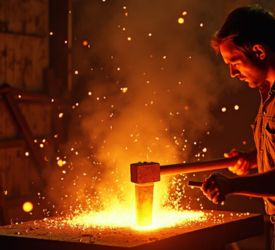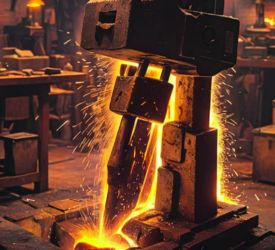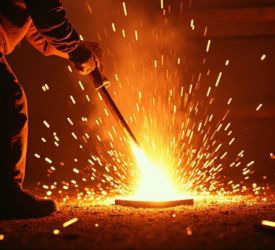Forging for Automotive Industry: Engineering High-Performance Vehicle Components

Blog Content
The automotive industry demands components that combine exceptional strength, reliability, and performance. Forging has emerged as the premier manufacturing technique for creating high-performance vehicle parts that push the boundaries of engineering excellence.
Critical Automotive Forging Applications
Forged components are crucial in multiple vehicle systems:
- Engine Components: Crankshafts, connecting rods, camshafts
- Suspension Systems: Control arms, steering knuckles
- Transmission Parts: Gears, shafts, clutch components
- Brake Systems: Calipers, rotors
- Structural Elements: Subframes, cross members
Zeometrix Forging Capabilities
At Zeometrix, we specialize in advanced automotive forging solutions that deliver unparalleled performance. Our precision engineering approach transforms critical vehicle components, utilizing state-of-the-art technologies to optimize material properties and structural integrity.
Technical Advantages
Forged automotive components offer remarkable benefits:
- Enhanced Strength: 37% stronger than traditional manufacturing methods
- Improved Grain Structure: Aligned metal structure increases durability
- Weight Optimization: Lightweight designs improve fuel efficiency
- Reduced Material Waste: Near-net shape manufacturing
Future of Automotive Forging
Emerging Trends:
- Lightweight materials integration
- Electric vehicle component engineering
- Advanced manufacturing techniques
- Additive manufacturing hybridization
Performance Metrics
- Tensile Strength Improvement: Up to 26%
- Fatigue Resistance: 37% enhanced performance
- Weight Reduction: Potential 15-20% component weight savings
Technical Specifications
- Dimensional Tolerance: ±0.001 inches
- Material Optimization: Advanced alloy integration
- Manufacturing Efficiency: Reduced production complexity

